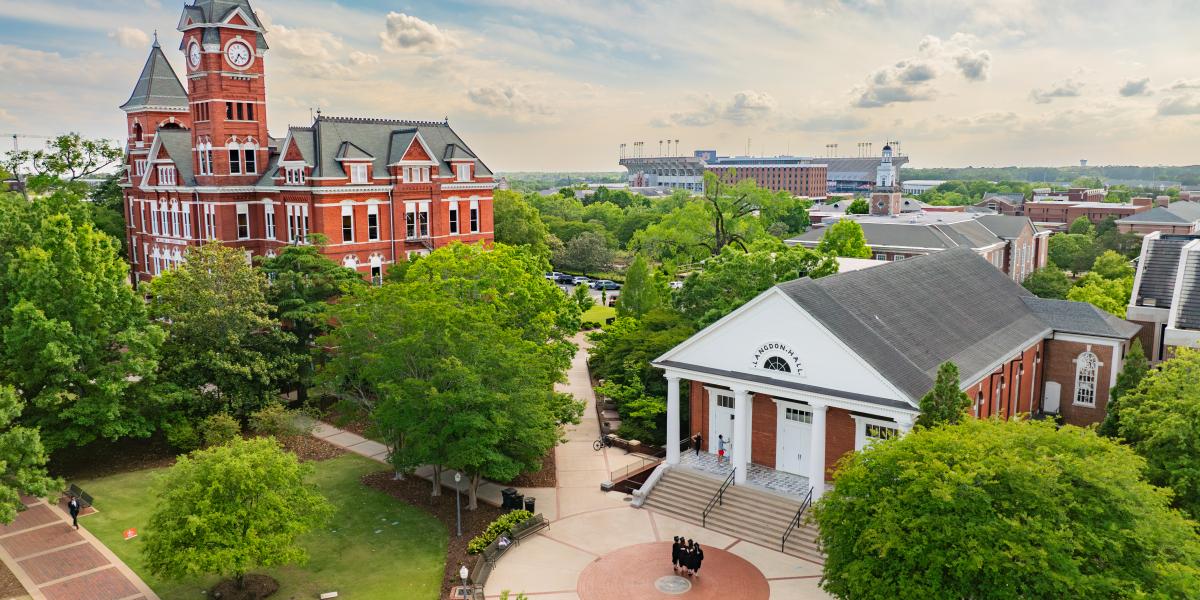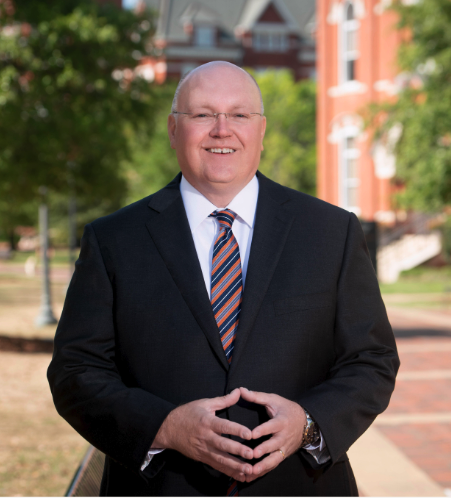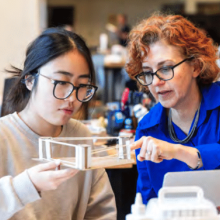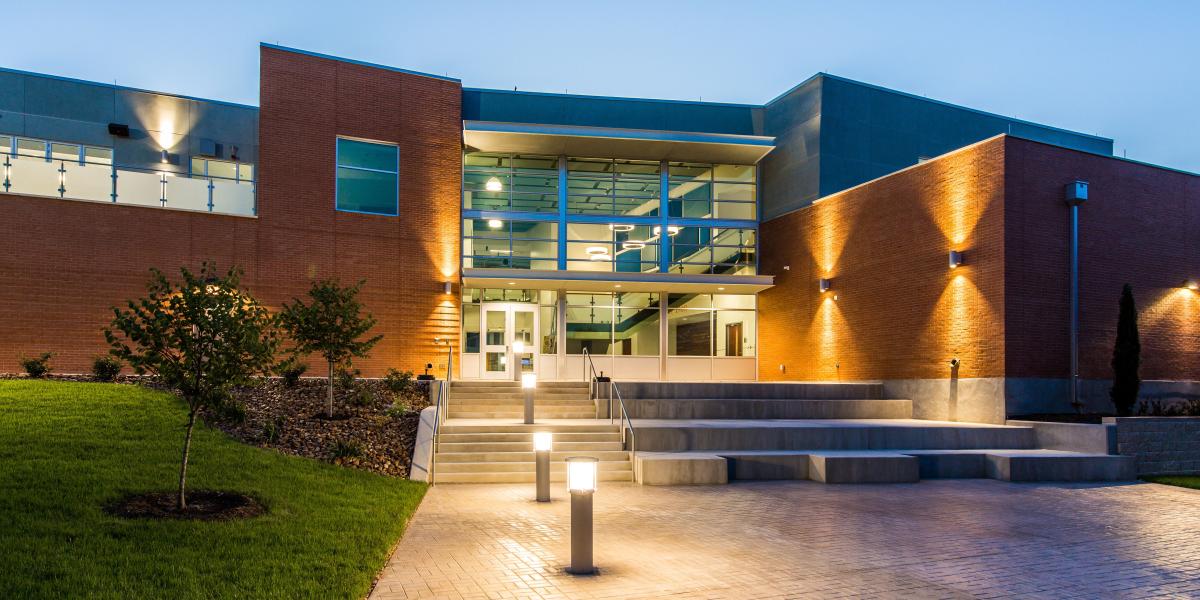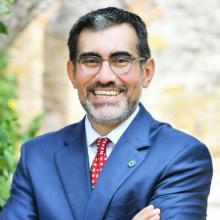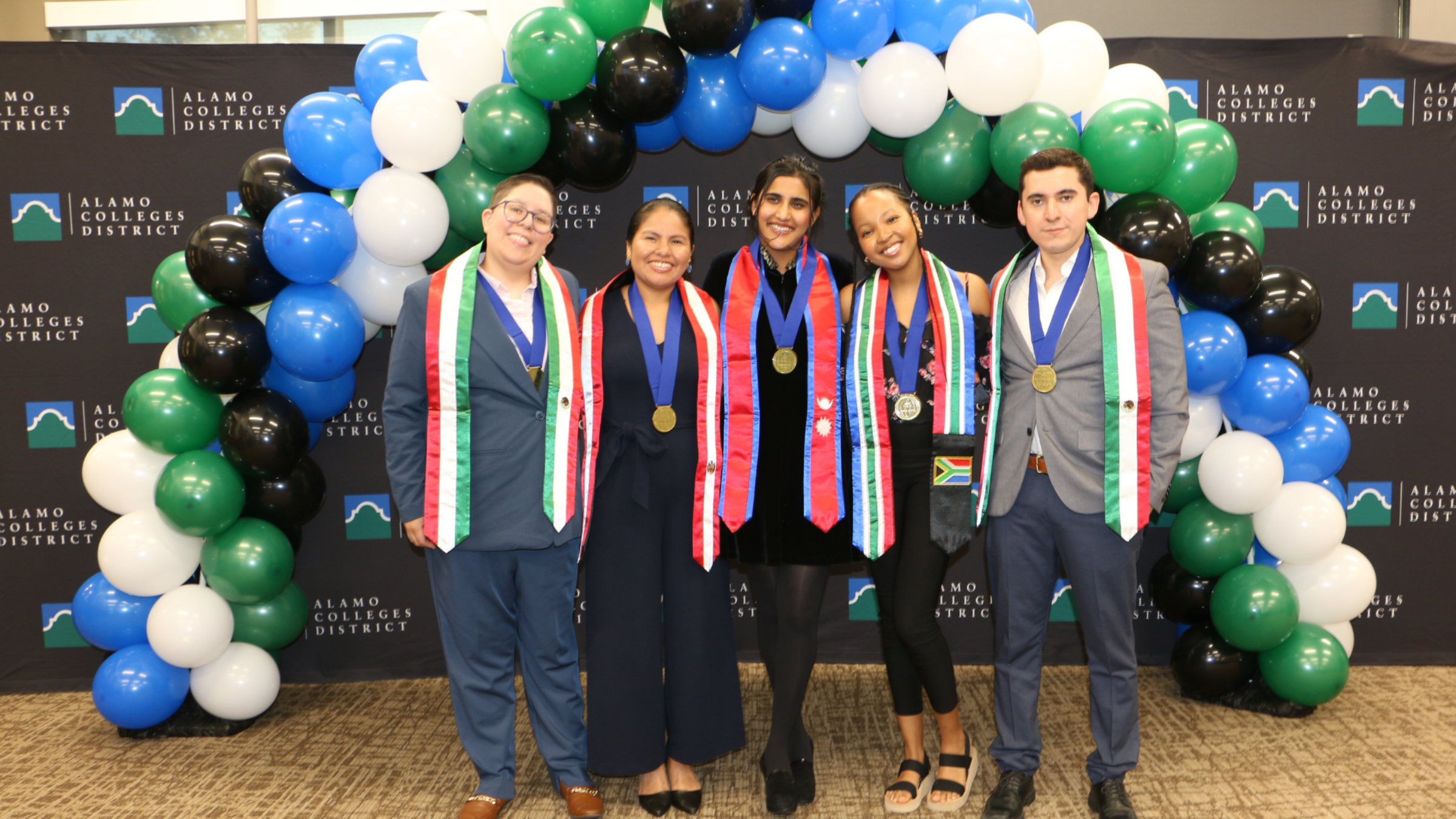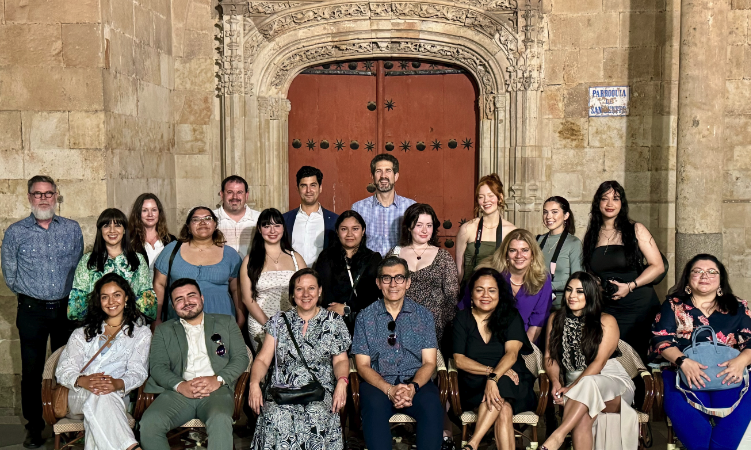2024 Comprehensive Auburn University
Auburn University is Alabama’s largest public higher education institution. The land-grant university enrolls more than 33,000 students, 26,000 of whom are undergraduates. Auburn's strategic location and proximity to international companies has facilitated the development of partnerships that create opportunities for research and global learning. The university also has robust education opportunities outside of the United States—with more than 20 percent of its undergraduate students studying abroad—and currently hosts around 2,000 international students.
Auburn University's journey toward comprehensive internationalization began in 2009 with the creation of a faculty committee that recommended establishing a senior international officer position. The assistant provost for international programs role was created in 2010 to lead the Office of International Programs (OIP), which was founded after a reorganization.
Auburn furthered these efforts in 2018 by starting participation in the American Council on Education's Internationalization Lab, a two-year process that resulted in the university's first strategic internationalization plan. This document reflects input from 30 leaders spanning administration, faculty, and student services and aims to infuse global opportunities into all aspects of the Auburn experience, including transformative research, impactful service, exceptional and engaged faculty and staff, strategic enrollment, and operational excellence.
Provost Vini Nathan says that experiential education is at the core of what Auburn does. “That's what global education is really about—letting students have the experience of learning in a context that is relevant to the curriculum that they're engaged with,” says Nathan, who was an international student from India.
The OIP spearheads the university’s internationalization efforts, overseeing study abroad, international student and scholar services, internationalization-at-home initiatives, and global partnerships. The office fosters campuswide collaboration by convening the International Advisory Committee, which has representatives from each academic college. Half of Auburn’s 13 colleges have also created positions for full-time internationalization professionals, who serve on the advisory committee and act as a bridge between the OIP and the deans and faculties of their respective colleges. The OIP also convenes the International Student Advisory Group, which brings together leaders of international student organizations and campus stakeholders to address student needs.
Facilitating Global Learning for All
In addition to these broader strategic internationalization efforts, Auburn has focused on specific aspects of internationalization, such as programs to put international experiences within reach of all Auburn students, regardless of their financial ability to travel internationally.
The Global Teaching Academy, established in 2014, recognizes and promotes excellence in internationalized teaching. To date, more than 40 faculty members have been inducted into the academy, representing a wide range of disciplines, from engineering to the humanities. These faculty have worked to integrate global perspectives into their courses, impacting thousands of students.
Launched in 2023, the Global Medallion microcredential helps students develop global competencies through a personalized study plan. Participants take introductory and capstone courses, complete either a study abroad or domestic intercultural experience, and are evaluated using the Cultural Intelligence Assessment. Exit surveys have indicated that Medallion students choose to participate in the program to demonstrate global skills to future employers. Participants are inducted into the Phi Beta Delta Honor Society for International Scholars, with their membership paid for one year through course fees, giving them an international network of peers with whom they can connect while building their career paths.
Andrew Gillespie, assistant provost for international programs, says that Auburn is anticipating growth in Global Medallion participation as it starts to market the program to incoming first-year students when they arrive on campus for orientation.
Expanding Access to Education Abroad
While Auburn has invested in efforts to reach students who are not able to travel internationally, it is also focusing on increasing the number of education abroad opportunities and participants.
About 20 percent of Auburn undergraduate students engage in an education abroad experience before graduation, with 1,500 doing so in 2023. The university has set the goal of reaching 50 percent participation by 2035. To achieve this goal and increase access, Auburn launched a new funding model in 2023 that enables departments to propose programs that subsidize study abroad for students with financial need. In its first year, the funding assisted 78 students who wouldn't have been able to go abroad otherwise, says Jennifer Mason, director of international initiatives.
Due to the program's success, Nathan has committed additional funding and made study abroad assistance a fundraising priority. In summer 2024, for example, the College of Nursing used the new funding model to lower overall costs for 20 students in the Healthcare and Culture in London and Edinburgh program.
While the OIP provides central support and coordination, much of the education abroad work happens within Auburn's individual colleges and schools. The College of Architecture, Design, and Construction (CADC), for example, offers a wide array of study abroad options, including weeklong, short-term, and full-semester programs, according to Ben Farrow, associate dean for academic affairs and international programs.
Farrow also notes that the CADC has expanded its offerings beyond traditional classroom-based courses to include more hands-on opportunities, such as service learning and internships. For instance, for the past 12 years, students in building science have traveled to Ecuador to construct projects in partnership with local communities.
Developing Strategic Industry Partners
In addition to creating international opportunities for its students, Auburn has capitalized on global connections that already exist in Alabama. In the early 2000s, the state experienced a manufacturing renaissance as international companies, particularly in the automotive and aerospace industries, established operations there.
More than 60 Korean companies—including Hyundai and Kia—are now located within an hour's drive of campus, and Auburn has leveraged that proximity to create global opportunities for students and to support local economies. “We're filling a real need for the community and creating opportunities for our students by linking the classroom to careers,” says Gillespie.
The Auburn-Keimyung Korea Center—established in 2012 in collaboration with Keimyung University in Daegu, South Korea—offers language and cultural programming, serves as a hub for research collaboration and exchange programs, and engages with industry partners to support workforce development.
“Our center was established to bridge the cultural gaps between the Korean community and the campus community through language and culture, but we also help Korean industries address labor shortages and train Auburn students for future jobs, ” says Ellie Lee, director of the Korea Center.
For example, the center coordinates an exchange program between Auburn and the Convergence and Open Sharing System Future Automobiles Consortium, a group of seven Korean universities. The program aims to provide Korean students with academic instruction and professional experience in the U.S. automotive industry and has a unique program structure: Students spend their first semester taking courses at Auburn and complete an internship during their second semester.
We're filling a real need for the community and creating opportunities for our students by linking the classroom to careers. —Assistant Provost for International Programs Andrew Gillespie
The Korea Center also runs the Korean Studies and Culture summer study abroad program in Daegu and has an exchange program with Keimyung University, open to students of any major. In fall 2024, the center started recruiting domestic students for a Korean internship program.
Inspired by its Korean partnerships, in 2022, the university established a partnership with the Taiwanese government and the National Cheng Kung University (NCKU). Whereas the Korea Center focuses on partnerships with industry, due to Auburn's proximity to several military bases, the Auburn-NCKU Taiwan Center of Chinese Language and Culture addresses the critical need for Mandarin-language training within the U.S. armed forces. Auburn is currently exploring additional centers focused on other strategic countries and regions, such as Japan and the Middle East.
Preparing Students to Succeed in an Interconnected World
The Korea and Taiwan centers are also helping strengthen overseas alumni ties. Auburn has a very active alumni community in Taiwan, and some of its members participate in the Alumni International Mentoring Program. That initiative pairs students interested in global careers with alumni living abroad for a one-year virtual mentorship.
The program has led to actual job placements, Mason says. “It’s an amazing experience for students to seamlessly transition into an international career because they had the support of an alum,” she adds.
As Auburn finalizes its 2035 strategic plan, internationalization remains a top priority. Future initiatives include convening a campuswide committee to review the university’s core curriculum. As part of that committee’s efforts, it will define “global literacy” and incorporate it into the core curriculum as a fundamental skill. “We are committed to providing transformative global experiences for all students,” Nathan says. “Our new strategic plan will outline ambitious goals and initiatives to further enhance our international partnerships, expand access to study abroad, and integrate global perspectives across the curriculum. We want every Auburn graduate to be prepared to succeed in an increasingly interconnected world.”

